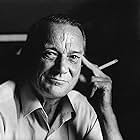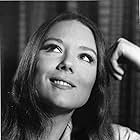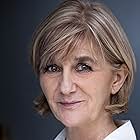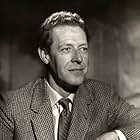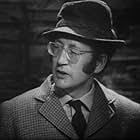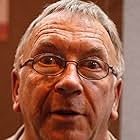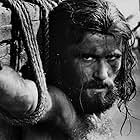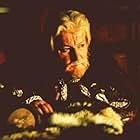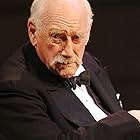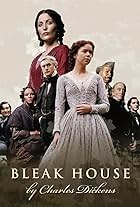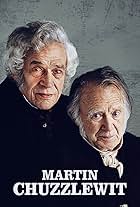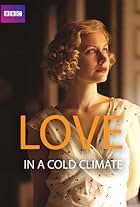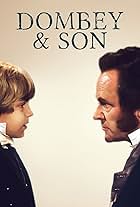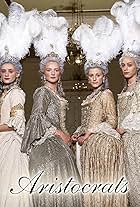IMDb RATING
7.6/10
430
YOUR RATING
The great case of Jarndyce and Jarndyce drags on, an obsession to all involved. Then a question of inheritance becomes a question of murder.The great case of Jarndyce and Jarndyce drags on, an obsession to all involved. Then a question of inheritance becomes a question of murder.The great case of Jarndyce and Jarndyce drags on, an obsession to all involved. Then a question of inheritance becomes a question of murder.
- Won 3 BAFTA Awards
- 3 wins & 3 nominations total
Browse episodes
Photos
Storyline
Did you know
- TriviaLast television drama role of Gerald Flood (Coroner).
- ConnectionsEdited into Masterpiece: Bleak House: Part 1 (1985)
Featured review
I recently have been on a major Dickens dvd binge, watching several of the early 80's BBC TV versions of "Oliver Twist", "The Pickwick Papers", and "Dombey & Son". About a year previously, I watched "Hard Times" and "Nicholas Nickleby". I was unfamiliar with all but "Twist" and "Pickwick", though I've never read any of the original novels upon which all the aforementioned titles are based. I've seen other TV and movie versions of several famous Dickens titles over the years, some from BBC, some from various studios. The current binge, though, has been as an antidote to pathetic regular TV and lack of worthwhile theatrical releases. I've been craving compelling plots, historical escapism, and fascinating characters. Knowing Dickens filled these requirements, I indulged myself. Bleak House was my latest excursion into a story I knew nothing about. Having just recently finished the excellent BBC TV movie version of Dombey & Son(again, about which I knew nothing), I was looking immensely forward to House. The first drawback that almost killed it for me were the several impossible-to-understand accents, a common factor in all these adaptations, a major hindrance to their enjoyment. It seemed the worst in Bleak House. Fortunately, most of the main, important characters were usually easy enough to understand. One good thing is that, as in many of these British literary films, one or more major characters are generally silent, saying very little. Mostly reaction shots and quiet, sparse dialog. My next major complaint, as has been mentioned by others, were the dismally dim and grungy settings. Despite historical accuracy and Dickens' original descriptions, visually these were extremely tedious and depressing to watch. They may work wonderfully on the printed page but are excruciating downers to sit through. In fact, there's virtually no color in the entire production. Sometimes I wonder if the endless human, animal, and carriage movement and congestion in the streets of London were as constant and chaotic as these films often depict, but especially so in House. My point being, aside from the grime and filth, such crowded, drab street commotion was just exhausting to watch. Episode 4 was the absolute worst for me. Incoherent accents, dark settings, and a complete standstill of plot, along with long, static, extremely talky scenes. Almost gave up on the series but forced myself to stick with it. I won't rehash the storyline but it IS convoluted and confusing. Sound quality is wildly uneven, too. One minute I had the volume up as high as it goes, the next minute, a character or music was so loud as to blast one's eardrums, necessitating an immediate turn-down, only to repeat the process almost continuously. Acting overall pretty good. I think Mr. Elliott takes the honors. I identified with him the most. The actor playing the man-child Skimpole very good, also. As much as I've always liked Diana Rigg, she didn't do much for me in this, spending most of her limited screen time staring at characters as they talk at her for what seems like forever--her face, emblematic of her regal detachment, completely immobile for lengthy periods of time, just staring. Not the most interesting use of a visual medium. A couple of lesser characters, maids, I think, were facially indistinguishable from each other, adding to confusion. The drama has its moments but they're sporadic. Convoluted plot, horrendously dark, grungy settings, and incomprehensible and/or irritating accents make Bleak House a long, tough slog. And yet the greatness of Dickens still comes through. On film, though, House is too labyrinthine and plodding, with largely unlikeable or uninteresting characters, and depressingly dim scenes that didn't translate well visually. Most surprising of all, for those who stick with it, is the very satisfying and moving conclusion(to me). Bleak House is a mixed bag in terms of this particular BBC version but is very bleak indeed to watch. Best advice is to skip, as it's not really worth the investment of time, even for a Dickens fanatic like me!
- jackbuckley-25095
- Dec 5, 2019
- Permalink
- How many seasons does Masterpiece Theatre: Bleak House have?Powered by Alexa
Details
- Release date
- Country of origin
- Official site
- Language
- Also known as
- La casa desolada
- Filming locations
- Production company
- See more company credits at IMDbPro
Contribute to this page
Suggest an edit or add missing content

Top Gap
By what name was Masterpiece Theatre: Bleak House (1985) officially released in India in English?
Answer

